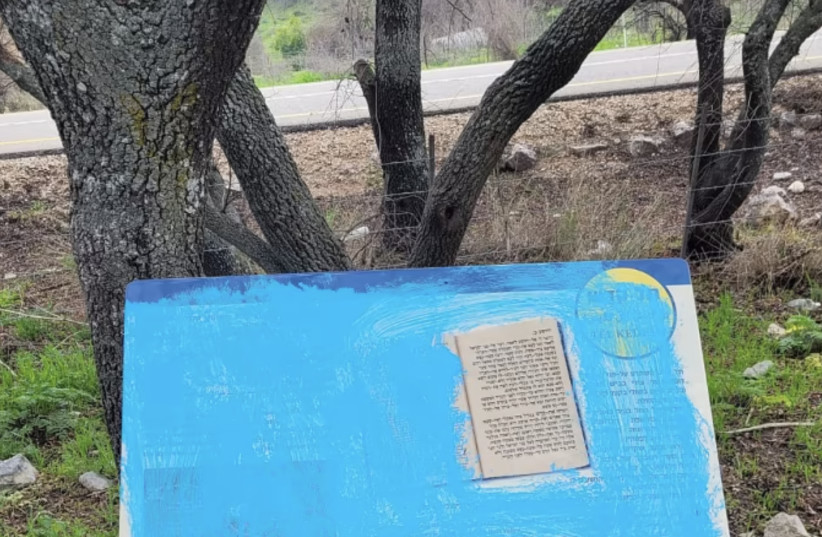The Tel Kedesh historical site in Israel's Upper Galilee was vandalized early Friday. Graves dating back to the Roman period were sprayed with symbols and graffiti reading “Deborah the prophetess.”
Sarcophagi were found among the vandalized property, falling to the frequent recent claim that the prophetess Deborah is buried at the site.
During the Tel Kedesh excavations, ancient cities as well as a large administrative building dating back to the Hellenistic period were uncovered. This building was filled with hundreds of stamps — pieces of clay with seals on them — that sealed various goods and documents at the time.
There was also a magnificent Roman temple dedicated to Baal-Shemin, one of the main gods of the region during the Roman period. Surrounding the mound and the temple, there were many cemeteries found. Many elegant sarcophagi were uncovered from the Roman period, as well.
Yesterday, an unidentified person wrapped stones from the Byzantine and Crusader periods in the archaeological garden in Jerusalem in cloth. This was seen as a sign of protest and a demand to remove them from the location permanently.

Other antiquity crimes
Around three months ago, three Wadi Ara residents of Wadi Ara were detained on suspicion of conspiracy to rob antiquities in the Megiddo area, in the north.
The three robbers, ages 64, 40, and 37, were spotted near the antiquities site with metal detectors and pickaxes for digging. Their case was transferred to the Antiquities Robbery Prevention Unit for further investigation.
The case was uncovered during an operation by the Israel Police and the Border Guard in conjunction with volunteers from Megiddo communities. This was uncovered during routine traffic checks in open areas, meant to prevent reckless driving and field damage by motor vehicles.
The robbery of antiquities from different archaeological sites is a common phenomenon that could yield criminals a large profit. However, it also damages artifacts and causes irreversible damage.
Exactly one year ago, an identical case occurred in the north, when police seized 538 coins that had been looted from antiquities sites. These were uncovered during a search activity for weapons and means of warfare, which was conducted in the village of Bir el Maksor near Shafaram,
The police said that they are working against antiquities thieves, who are looting excavation sites and historical places in Israel, stating “These are properties that belong to the general public in Israel, and therefore trading in them is a criminal offense."
